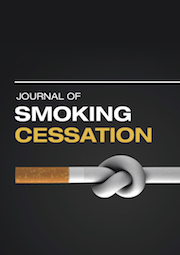Article contents
Development and Evaluation of a Physician-Led Smoking Cessation Intervention for Low-Income Chinese Americans
Published online by Cambridge University Press: 21 February 2012
Abstract
This article describes a culturally and linguistically relevant, physician-led smoking cessation intervention that was delivered to the Chinese American community in New York City. Data were collected from a convenience sample of 115 participants (94% male) at a clinical site of a community health centre. The smoking intervention program included pharmacological treatments and brief cessation counselling, education and support by the physician and the health educator. Process data included the drop-out rate, number of visits completed and use of pharmacotherapy. Outcome data included self-reported and biochemically verified (expired carbon monoxide) smoking status at week 12. In the process evaluation, valuable information about the components of interventions that worked well and challenges participants faced during their quit attempts was gathered from participants, doctors and the health educator. Sixteen participants (13.9%) successfully quit smoking. Chinese male smokers face many daunting challenges that prevent them from regularly attending a smoking cessation program. Despite these challenges, they appeared to benefit from brief interventions, although the cessation rate was modest at best. This information should be incorporated into future design of smoking cessation programs to address required behavioural change in this population.
- Type
- Articles
- Information
- Copyright
- Copyright © Cambridge University Press 2009
- 4
- Cited by


